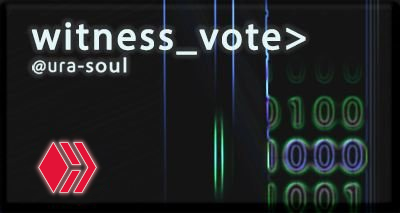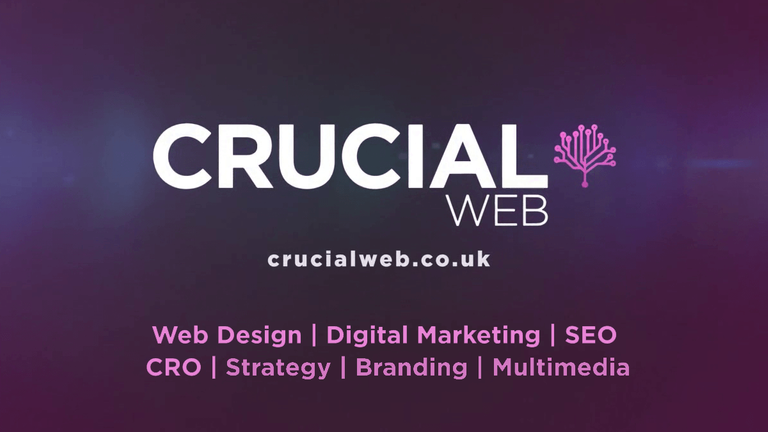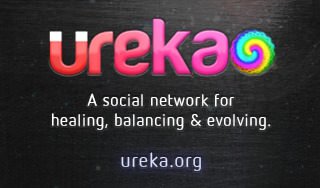Non Fungible Tokens (NFTs) have exploded in popularity in the last year but what degree of solidity do they rest on? Are they the answer to the corrupt and broken commercial art world or do they only represent a dream that lacks substance? Let's poke around a bit...

NFTs are essentially crypto 'tokens' that are uniquely identifiable, meaning that they are not interchangeable in the same way that standard crypto coins are (e.g. Bitcoin or Hive). NFTs can be used to represent anything that we consider that it would be useful to represent on a blockchain, such as a physical object, an event, an offer or some kind of multimedia (art, photo, video or music).
This means that NFTs allow us to own and trade anything that can be expressed as digital information. We can also apply licensing terms to the NFT or other kinds of rules and logic, via smart contracts, that enable commercial features to be involved. For example, some NFT websites allow the original creator of the NFT to receive a cut of any sales that are made from the NFT in future, after it is originally sold from source by it's creator; essent-ally, meaning that all resales generate income forever!
So far, the biggest NFT websites, such as Rarible, Opensea, Maker's Place and Foundation tend to focus mainly on images, short animations and short videos. Some adventurous sellers have included extra bonuses along with the digital files too, such as event tickets or other special bonuses. For example, this item on Rarible combines free tickets and a few other perks too.
The Hive Blockchain also has it's own NFT markeplace in the form of NFT Showroom - currently growing nicely in the few months since it's launch, with a current Alexa.com ranking of 312,958.
Plenty of NFTs have sold for millions of US dollars and often under dubious circumstances. It is possible for money laundering and tax evasion to take place through the sale of wildly overpriced artworks, so next time you wonder why someone has paid $1 Million for a 50 pixel representation of a face that probably took 10 minutes to make - well, there's that!
None the less, artists such as 'Beeple' have sold NFTs for huge sums and their work is legitimately high quality.. So we have a combination of genuine commercial activity likely mixed in with some very dubious activity! This is essentially the same as with any commercial system of exchange, including Bitcoin and all fiat currencies such as US Dollars and UK pounds too.
A few sites are starting to offer music NFTs too, but none have really taken off yet to the same degree that visual art sites have.
Fun With the Gullible
The massive growth of NFTs has seen them collectively net Billions of US Dollars in sales in the last year and a half, yet there are some quite glaring challenges faced by NFT networks relating to copyright and them living up to their claim of being the ultimate form of record of ownership!
In many cases there isn't much stopping anyone from downloading an image from a website or some other source and then selling it as an NFT as if they own it. This means that there's a real chance of buyers paying for something that they cannot legally own or buy in the way that they believe they are when they pay. Larger NFT sites attempt to combat this by verifying sellers as best they can, but this does not guarantee that the sellers isn't breaching copyright of someone else when they create their work.
In a sense, these sites are facing the same kind of problem that record labels faced at the advent of music sampling being used in records. In theory, any revenues generated from sales of copyrighted material are forfeit and big fines can legally apply. Yet, as with the music industry, it seems that many artists and websites are happy to take the risk and gamble that they will not be caught or fined.
Breaches of copyright are one thing when someone is just selling one offs of a piece of art, but what if they are also claiming to sell rights of reproduction to allow others to sell merchandise or other kinds of rights? Then the problem can quickly spiral into a situation where huge profits are made by various people, some of whom think they are doing so legally - but in reality it is all illegal!
What is the answer to this?
As NFTs grow in popularity and become more and more common, the chances are that we will either see an increase in automated monitoring of artwork - perhaps leading to a government run repository of copyrighted creations that is easy/free to access and which any site can connect to in order to check copyright in realtime. Alternatively, we may see big sites employing very efficient legal teams to defend against a constant barrage of claims!
It may be that specialist agencies spring up to monitor rights specifically across NFT marketplaces.
Cross Chain Compatibility
On top of the copyright conundrum, there is a further issue of compatibility between marketplaces. In the real world, you can buy a piece of art and then sell it in a different auction house. NFTs generally don't allow this at present very easily. There are, however, several projects aiming to offer cross compatibility between NFTs, but who wins out will likely be down to which large NFT sites adopt the solutions first.
Protocols are also evolving to allow items in computer games to be moved between games! So you might earn or buy an item in Grand Theft Auto 10 and then still be able to use it in BurnOut 2035!
The Future of NFTs?
As with all digital technology, the future of NFTs is not just about technology, it is about our decisions, values, perceptions and creativity. The current problems with NFTs that arise from the inherent ease of duplication of digital assets may well be overcome with future fingerprinting technology, combined with legislation and human organisation. On the other hand, we may discover that actually, much of the NFT craze is just that - a craze - with serious collectors developing their own protocols for buying digital rights to high value items and everyone else losing interest.
At the very least, this massive boost of interest in creativity is motivating many people to try their hands at expressing themselves artistically in an attempt to get a piece of the action. Everything in life is creation in motion, so anything we can do to be more in tune with the creative impulse is inherently valuable in ways that go far beyond money!
What do you think? Are there any really key NFT projects, concepts or tech that I missed out? Would you prefer if we all just stuck to painting on cave walls with hands and blown ink? Let us know in the comments!
Wishing you well,
Ura Soul

Read My User Guide for Hive Here
View My Witness Application Here
View Some of My Witness Related Posts
Note: Witnesses are the computer servers that run the Hive Blockchain.
Without witnesses there is no Hive blockchain or DApps such as PeakD and 3Speak... You can really help Hive by making your witness votes count!



I suspect this is an important topic that deserves a dedicated group working on establishing standards and at least outlining protocols. Perhaps a project for Hive?
Some years ago I got involved in the early stages of the Vape industry (not marijuana) and one of the brighter spots was that we established standards well before any regulatory agency, such as ID requirements and no underage sales and also limiting e-juice production to only American or European sourced ingredients for safety standards. Political pressure from the tobacco industry eventually crushed most operators. The main point is that if a group of us start now to establish standards and protocols we will gain an advantage needed later.
As @taskmaster4450 pointed out in another post today, regulation is coming. By taking proactive steps in this early stage we can have a say in how the regulation is shaped. This is particularly true if our efforts motivate companies like ShutterStock.com (tm) to migrate their image databases to platforms such as Hive. This would also simplify ownership security measures such as @dynamichivers 'watermark and owner key' suggestion in the comments to this post.
It's a thought at any rate.
Blessed be.
The main barrier with NFTs as far as self regulation goes, is that there is already a massive body of regulation in place for art and copyright, which it is not really going to be 100% possible to escape. Even with self regulation there will be many cases where things go to court anyway. I do agree, though, the structures put in place by the successful platforms and communities will shape the future to some extent and do have the power to possibly reshape wider copyright etc.
We already have creative commons licensing and 'copyleft' etc. from the software world and I suspect that in most cases people will just use software as a template for NFT rights - coupled with existing multimedia ideas.
I have seen some platforms deliberately structuring their rules to completely let go of the old ways and try to embrace only a new way - it will be interesting to see how that works out, but so far they seem to be having limited success. We shall see!
I've yet to mint one. Coming closer. Something many on the outside (and even quite a few amateurs on the inside) of the 'art world' don't understand is the part about brand power. People don't follow art, they follow artists.
Random works of art strewn about all over the internet with no connection to the actual artist has very little value. Interested buyers aren't frequenting the fly-by-night NFT platforms springing up everywhere. Those are designed to make money for the developer of the site, not the artists or contributors. They sometimes form small communities and support one another but that's like saying only actors watch movies and only athletes attend sporting events. Products simply sit on the shelf and some new to 'the game' don't understand why, so they move on to the next one.
You'll see a lot of 'quantity over quality' approaches. Some buyers don't even know if they're buying a photo that was processed by AI, which I see a lot of these days (some of those programs specifically state they're not meant for commercial use), or if they're buying an actual creation made from scratch. Direct roads between the work and the artist are necessary. So I really like having my own platform, here, as well as a place to set up shop, locally. I guess the small market is one main contributing factor holding me back.
Also I don't like how the pricing and selling utilizes a token that fluctuates in value. I've watched over the past few months so many artists learn the hard way. They're often not fully in control of their profit margin, which can be disastrous in business, and several are 'new' to crypto, unaware of all the finer details.
Yes, I agree - good points. When you say that you like having your own platform are you referring to Hive and NFTShowroom? I notice they are using Hive instead of HBDs, maybe they should switch to HBD now that it is more stable!
Yes. How it's all connected and the consumer base/market is shared between several platforms; to me that's what gives Hive the advantage. For instance, I've stumbled across several art posts now that offer a link to an outside NFT. Instant lost sale, since I don't own or have immediate knowledge on how to acquire the tokens needed to purchase. By the time I go through those hoops, what I want could be gone. Someone advertising on Twitter suffers the same fate. Only a small percentage become actual interested buyers, the rest are only browsing the merchandise, much like a consumer flipping through a magazine but not buying it.
As an artist/writer/entertainer/whatever I am or want to be, my community forms around my content. A content creator is a business person. The content is the entertainment; what attracts the eyes. The NFT is the merch. I'm hoping at some point people will be able to click the image directly in my post and be offered options to purchase with a few clicks. That would be ideal. Basically NFT Showroom, embedded into a post. I've mentioned that concept and the use of a stable-ish coin (as some so cleverly call HBD) to aggroed since he seems to be at the helm, but I don't get a response. So I might hold off a little longer until something more suitable comes along. There's no rush and these things evolve fast.
I see ok. Well, for now you could create animated or image adverts for your NFTs and then add them to a post template in your hive app (peakd does this) which allows you to link them to your nft pages. That way you'd automatically have Ads for your NFTs in all of your new posts - similar to how I have done at the bottom of my posts.
Yeah, and I could do that with the image itself, but then it takes the consumer away and I lose out on potential engagement. And to be honest, I scroll past these things at the end. Some of us actually joke about how some have longer signatures than posts. Just sayin' man!
I thought you were asking for that feature from NFTShowroom, so I guess I misunderstood what you were asking for.
The ability to purchase directly from the post, and continue browsing, voting, leaving a comment about how you made the purchase, for instance. Then within seconds I'm already speaking with the buyer. At that point you're about as close to being at a convention or gallery as you can get, online.
you couldve included the transformative nfts like the eggs on kusamu that hatched into unique artbirds as their ultimate form and use was affected by variable interacting with set guides and if this then that rules written by their Dev mothers. I'm not tech enough to do such a project myself, but as an artist i can see some amazing possible art. I have considered looking to collab with a dev, maybe tomoz..
oh ok, i hadn't heard of that. i guess in principle an NFT could be an entire application or game!
It could - hence the fomo in normie land about ETH smartcontracts etc.
From the Art viewpoint try doing a search on programmable art / NFT there are some dapps experimenting with it now. I loved the idea that you can sell an artwork and it would grow and evolve on its own. Conceptually it raises a few off the wall ideas.
Great, ok - yeah - that's something I might experiment with once I free up more timespace :)
Oh, I see you are in Sydney - So am I at the moment. :)
you may need to stay a while. Gladys isn't taking the despots hat off soon.
I know someone who is an art curator. He manages world famous super talented artists. He prefers instagram for this reason since his artists images are stolen all the time online. In fact his website is lackluster for this reason.
I have been trying to get him to promote his artists on Hive as he finds using crypto vital for overseas transactions but the very overseas customer base misuses his images all the time and that images are easily downloaded and repurposed.
Having a standardize way to maybe embed a watermark into the image that only allows it to be seen with the 'owner key' and only allowing it to be seen on permitted chains. But like you mentioned there is no standardize way to do this on multiple chains, at least yet.
The virtual world however has been creating a space for NFTs for a long time. For example you can design high end coffee tables or exquisite chandeliers and even historical landmarks in the virtual reality space...
https://en.cryptonomist.ch/2021/08/05/ovr-and-blackpool-nfts-with-augmented-reality-and-virtual-reality/
Yes, a method of only allowing the low res preview versions of artwork to be available to non owners would go a long way to protecting pieces up to a certain point.
I hadn't seen OVR before, I'm sure there will be many such ideas in time - especially as the cost of minting NFTs reaches zero. Let's hope we don't reach a point where there is a 'lifechain' owned by Bill Gates, where everyone gets their own NFT at birth! :(
The possibilities are definitely infinite seemingly🏴☠️😄